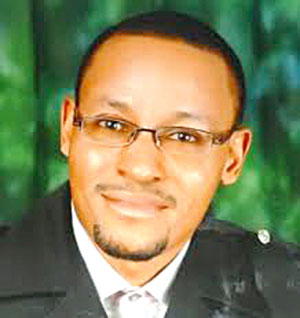
CCT Chairman, Danladi Umar
By YUSHAU SHUAIB
THE recent attempts to forcibly remove the Chairman of the Code of Conduct Tribunal, CCT, Justice Danladi Yakubu Umar, are profoundly troubling and raise serious concerns about the independence of our key democratic institutions.
According to a highly placed source, there is an apparent plot to force Justice Umar to resign or invade his official residence to install a political crony as the new CCT Chairman. This would be a blatant violation of the constitutional provisions governing the appointment and removal of the CCT Chairman.
One may easily nurse the fear that the raiding of official residences of some judges during the administration of President Muhammadu Buhari could be replayed under President Tinubu’s government.
It would be recalled that in October 2016, Nigeria’s judiciary was plunged into crisis as operatives of the Department of State Security Service, DSS, raided the homes of senior judges in Abuja, Port Harcourt, and Gombe, intimidating them and their families. At least two targeted judges had previously ruled against the DSS, condemning its disobedience to court orders and lawless actions. The move had drawn comparisons to the country’s military era. It sparked widespread outrage, with the Nigerian Bar Association, NBA, declaring a state of emergency and calling for the release of the detained judges.
Meanwhile, in the current instance, those behind the attempt to remove Umar Danladi by hook or crook should realise that the 1999 Constitution (as amended) stipulates that the Chairman and Members of the CCT are to be appointed by the President upon the recommendation of the National Judicial Council, NJC, which must also have received advice from the Federal Judicial Service Commission, FJSC. However, the recent announcement by the Presidential Spokesperson, Ajuri Ngelale, of Dr. Mainasara Umar Kogo as the new CCT Chairman did not follow this due process.
Furthermore, the Constitution states that the President can only remove the Chairman and Members of the CCT upon an address supported by a two-thirds majority of each House of the National Assembly (the Senate and the House of Representatives) and only on the grounds of inability to discharge functions. The incumbent Chairman, Justice Danladi Umar, is in his 50s and does not meet the age requirement for mandatory retirement.
Renowned legal experts, such as Professor Mamman Lawan Yusufari, a Senior Advocate of Nigeria, SAN, have strongly criticised the government’s actions as a clear breach of the Constitution. Professor Yusufari, a former Dean of Faculty Law at Bayero University Kano, BUK, emphasised that the legislature must approve the removal of the CCT Chairman, citing acceptable constitutional grounds such as inability to perform functions or misconduct.
Justice Danladi Umar has a reputation for being a courageous and impartial jurist. He has presided over several high-profile cases involving national assembly leadership, governors, top judicial officers, and other public officials. Notably, he discharged and acquitted the then-opposition leader and former Lagos State Governor, Asiwaju Bola Ahmed Tinubu, of false declaration of assets and operation of foreign accounts in 2012, despite facing external pressure to convict him.
It was suspected that Tinubu’s prosecution at the tribunal was a bid to block his presidential ambition because Section 137(1)(e) of the Constitution of the Federal Republic of Nigeria states that: “A person shall not be qualified for election to the office of President if, within a period of less than ten years before the date of the election, he has been convicted and sentenced for an offence involving dishonesty or has been found guilty of contravening the Code of Conduct.”
After the acquittal of the opposition leader, Danladi publicly admitted that he faced external pressure to convict Tinubu during the trial. He said: “I was under immense influence to convict Tinubu, but I defied the pressure and upheld justice. I swear by the Almighty Allah to do justice. External forces did not sway us, and our judgement was based on the law.”
Furthermore, the Economic and Financial Crimes Commission, EFCC, has twice cleared Justice Danladi Umar of corruption allegations. In letters dated March 5, 2015, and April 20, 2016, the EFCC confirmed no evidence of corruption against him. The then EFCC Chairman Ibrahim Lamorde signed the first letter during President Jonathan’s administration. The Commission’s Secretary, Emmanuel Adegboyega Aremo, signed the second letter during President Buhari’s administration when Ibrahim Magu was acting Chairman.
Resorting to underhanded tactics to forcibly remove Justice Umar from his position would not only be undemocratic, but it could also set a dangerous precedent that could undermine the independence of our key institutions. Unless there is compelling evidence of serious wrongdoing, following due process or allowing Justice Umar to serve his term is the proper action.
President Tinubu must resist the pressure from any cabal and uphold the rule of law against the attempted arbitrary removal of the CCT Chairman. The Nigerian people deserve to have confidence in our institutions’ integrity, which can only be achieved through a steadfast commitment to due process and the Constitution.
I call on President Tinubu and the Justice Minister and Attorney General of the Federation, Lateef Fagbemi, to stand firm and ensure that Justice Danladi Umar is not forced out of his position through undemocratic means.
The Secretary to the Government of the Federation, Senator George Akume, and the Chief of Staff to the President, Femi Gbajabiamila, must ensure that all appointments are thoroughly scrutinised and follow due process before announcements. This is crucial to prevent appointments that may breach the Constitution or violate the law, thereby upholding the principles of transparency, accountability, and good governance.
The independence of the CCT and the broader judiciary must be protected at all costs. Anything less would be a grave disservice to the Nigerian people and our democratic ideals.
Disclaimer
Comments expressed here do not reflect the opinions of Vanguard newspapers or any employee thereof.